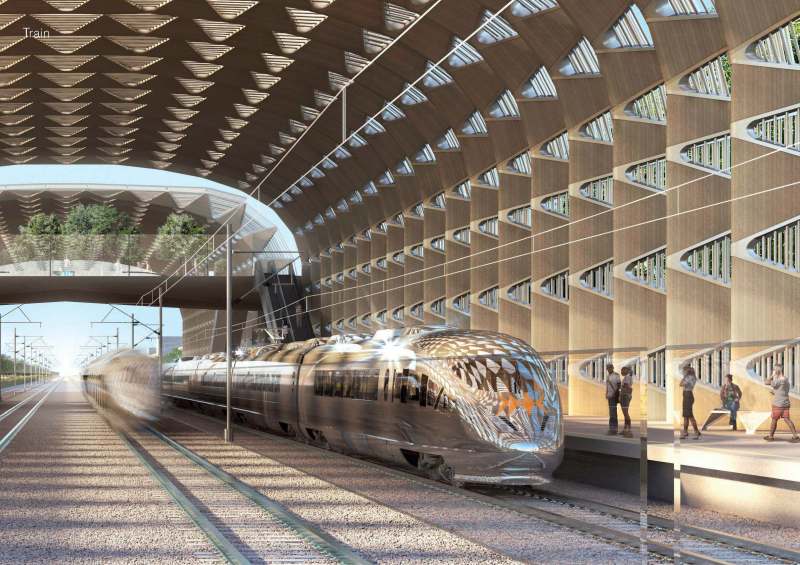Lawmakers voted and approved a $308 billion state budget on Wednesday that includes $4.2 billion for completion of the Central Valley spine of the California high-speed rail project. The state can now move forward purchasing trains, building tracks, and fully electrifying over 100 miles of right of way.
"We’re thrilled that California’s political leaders are ratifying the will of the voters by advancing funding for the state’s high-speed rail project,” said Sean Jeans-Gail, Vice President of Government Affairs at the Rail Passengers Association in Washington D.C. “Now, we’re calling on those same leaders, in partnership with the California High-Speed Rail Authority, to accelerate construction on this corridor."
'This is America's most important public infrastructure project that will redirect the nation into a clean, green 21st century," said Andy Kunz of the U.S. High-speed Rail Association. "We commend California's leaders for having the vision to boldly plan for a better future."
Word came down early this week that a deal had been struck to finally release these funds, locked in budget negotiations by Speaker Anthony Rendon and others for more than a year. TRANSDEF, one of many organizations engaged in lawsuits and other efforts to kill the project, conceded defeat in an email to its members. "I learned from the Speaker's Office yesterday that a deal was struck that gave the Governor the $4.2 billion in HSR bonds that he wanted. That ends our hopes that HSR project can be killed," wrote David Schonbrunn, the organization's president.
"Unfortunately, we lost in the trial court. We appealed. We lost in the appellate court," wrote the Community Coalition, a San Mateo based-group that helped launch one of many lawsuits against the project, in an email to its members. Their appeal to the California Supreme Court was rejected, meaning the main legal challenges to HSR are now dead.
"This is not the Notre Dame Cathedral, and it should not be a generational construction effort," said Jeans-Gail. "The need to electrify the state’s transportation system to battle climate change is too urgent to let this project languish under a barrage of endless reviews and lawsuits.”





